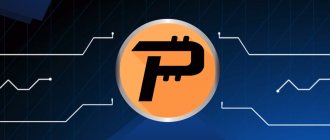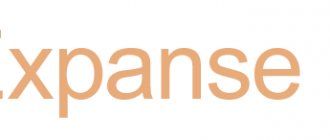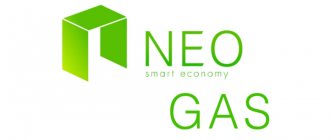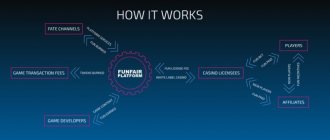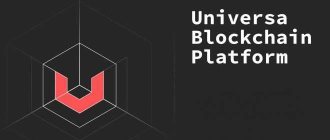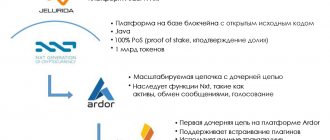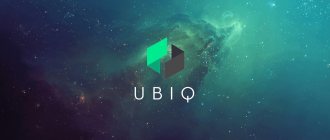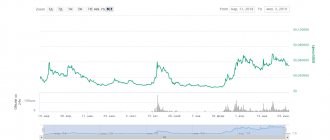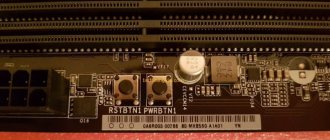Ontology is a blockchain platform created for business. The system supports smart contracts and stores data in several independent chains. The platform allows interaction with other blockchains such as Ethereum, making it more versatile than other existing solutions. ONT cryptocurrency is used to vote on issues of system management.
Platform concept
The Ontology cryptocurrency arose as a logical continuation of another popular project - NEO. The platform is based on the NeoVM virtual machine, which allows you to execute smart contract code in a distributed network. However, unlike its predecessor, Ontology is not so much a protocol as a set of modules for creating ready-made applications. If in NEO a developer is forced to write code from scratch, then in the new system he will be able to use ready-made design patterns.
The creators of Ontology identify 3 main scenarios for using the platform:
- building identification systems;
- work with any information, including those requiring a high degree of protection;
- interaction with other blockchains to solve a wide range of problems.
Figure 1. Ontology connects people, things, organizations and ways of transferring value into a single system of decentralized applications.
The reputation mechanism plays an important role in the system. Platform users can express their trust in companies and other system participants through voting.
It is noteworthy that Ontology does not undertake all information processing functions. On the contrary, the platform encourages the use of third-party blockchains and their use according to the needs of a particular application. Thanks to support for cross-chain transactions, the system can easily interact with other protocols, freeing developers and users from being tied to a specific product.
History of creation and project team
The launch of the Ontology project was first announced in November 2017 at the Onchain conference in Shanghai. Despite the close connection of the new network with the NEO blockchain, Onchain representatives strongly emphasized that these projects are not connected by a common team or sources of funding, so Ontology is a completely independent project:
NEO and Onchain are separate structures. They are independently funded: NEO lives on community efforts, and Onchain is founded by one of China's largest financial groups, Fosun.
However, Onchain actually controls the operation of the NEO blockchain, since it still does not have independent validator nodes. At the same time, Ontology smart contracts operate on the basis of NEO technologies, so the connection between these projects is also quite obvious.
Figure 2. Jun Li, founder of Ontology.
The founder of the platform is Jun Li, chief IT specialist and one of the founders of Ontology. In total, the project team consists of 40 people. Almost all of them live in China.
Ontology and NEO
NEO is an open-source blockchain created by the parent company OnChain, which also developed the Ontology blockchain in 2020. The second project of the Chinese company OnChain is intended for corporations that want to have a private blockchain project compatible with the NEO blockchain.
It can be said that NEO and Ontology complement each other in the smart economy ecosphere. In many ways, projects will develop tools on both networks.
Many NEO investors, upon learning about the Ontology project, initially feared that it would be two competing blockchains. But to support the collaborative ecosystem, the Ontology project decided to transfer a significant part of its tokens to ONT to govern the NEO board. The NEO Council, in turn, decided to transfer the tokens to NEO holders.
Similarities between NEO and Ontology:
- Token system: technically both tokens are similar, only the total supply of ONT tokens will be 10 times larger than NEO tokens (1 billion instead of 100 million); both generate GAS at the same rate of 15-20 seconds.
- dApps development support: NEO is an infrastructure platform for dApps development. Ontology is no different and to some extent they are designed to do the same thing. Ontology has a much better chance of working with government or large companies, while NEO is a future decentralized platform with community influence.
- Both systems are supported by the private company Onchain: both NEO and Ontology receive technical support from Onchain. Both founders Da Hongfei (NEO) and Jun Li (Ontology) are co-founders of Onchain. They work closely together.
Main differences between NEO and Ontology:
- NEO is a public block key, anyone can grant access to data and allow them to work with it. Ontology itself is also a public blockchain, but it aims to create separate blockchains for businesses to securely store their data without accessing or viewing it. They can link them to other blockchains to exchange specific pieces of data.
- Although both platforms are created for the development of dApps and smart contracts, NEO and Ontology serve different purposes. NEO's vision is to create a "smart economy" that is a public blockchain dedicated to digital assets and publicly developed dApps. The ontology network is also a public blockchain, but is created to create separate secure chains for existing businesses and to link such chains together.
Collaboration
The ontology will be able to create blockchains for business. For example, Company X wants to expand its business with blockchain capabilities and be able to connect access to customer data and identity. Owners will not trust the decentralized and public NEO project with their confidential data, but rather use the Ontology platform, which will provide a secure separate chain for Company X.
Company X can safely store their data there because it is only for them and is not public. But Company X will be able to connect its Ontology chain with the NEO project and receive all the benefits and access to the services of the NEO public platform.
TheKEY project is an identification database system on the NEO blockchain with the possibility of joint integration with Ontology. TheKEY may be the link that connects the identity of Company X's clients on the Ontology platform to the NEO public chain.
This is just one very simple example that shows that Ontology will have a huge impact and will give a huge boost to the use of NEO as a business platform. Company X could be any company: a commercial bank, Amazon or Alibaba. The use cases for Ontology are unlimited and who knows what the future will bring.
Project roadmap
Shortly after the airdrop, the Onchain team published a preliminary version of the Ontology roadmap. It follows from the document that the release of key platform functions is planned for 2018.
- 2nd quarter 2020. Launch of the main network, release of the identification protocol;
- 3rd quarter 2020. Cross-chain transactions, adding reputation and data storage modules;
- 4th quarter 2020. Work on increasing system performance, improved mechanism for working with reputation, support for the first decentralized applications;
- 2019 Adding new cryptographic algorithms, releasing distributed financial services, expanding capabilities for working with applications.
Twitter about Ontology
OntologyFollow
Retweet on TwitterOntology Retweeted
OIN [email protected] ·
We're proud to announce our new Logo! In our effort to become the first #DeFi DApp built on @OntologyNetwork, we are pushing hard to get everything ready for our upcoming #Liquidity pool launches. Stay tuned!
Reply on Twitter 1294185602699599872Retweet on Twitter 12941856026995998726Like on Twitter 129418560269959987222Twitter 1294185602699599872
Are you a #dApp #developer?
